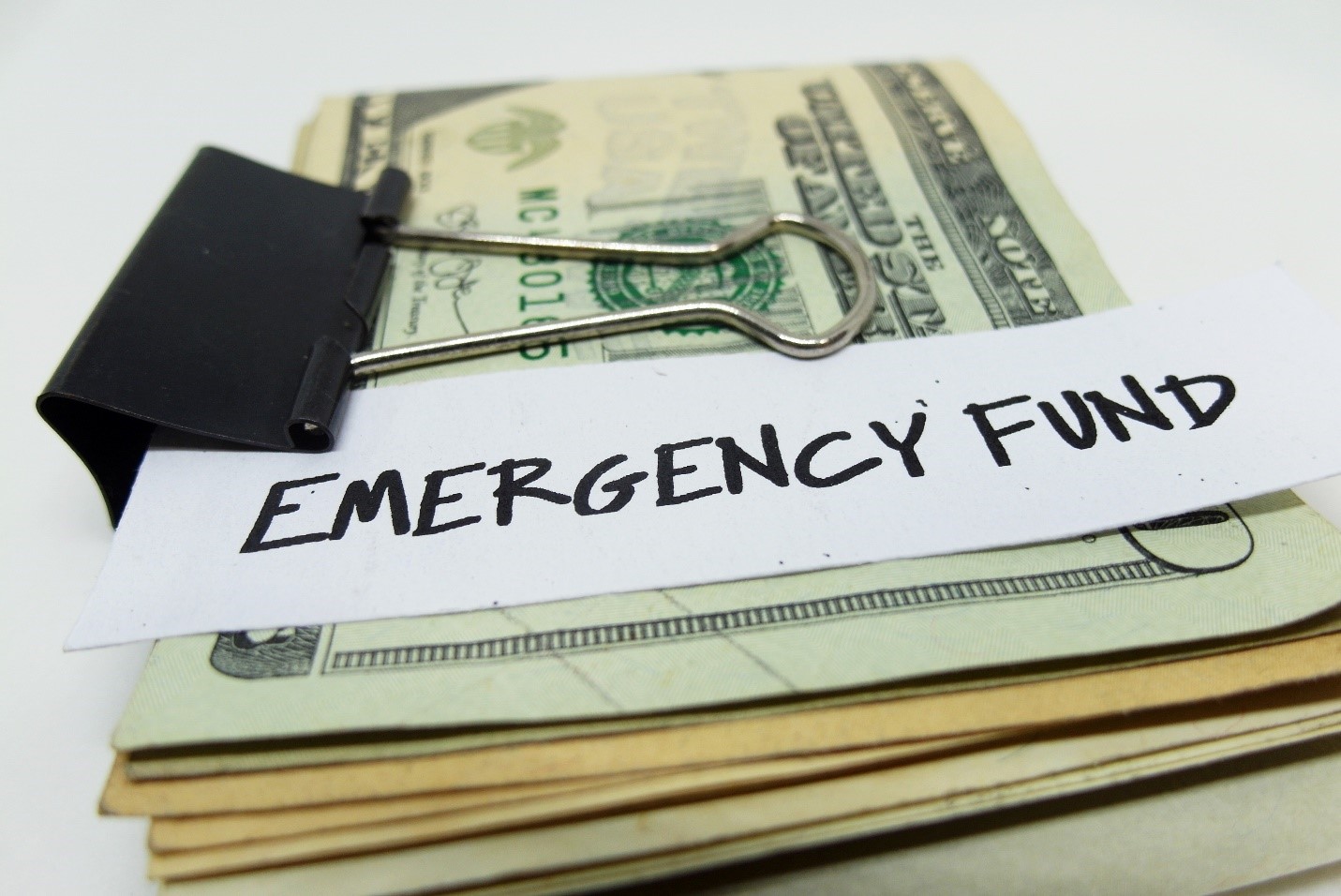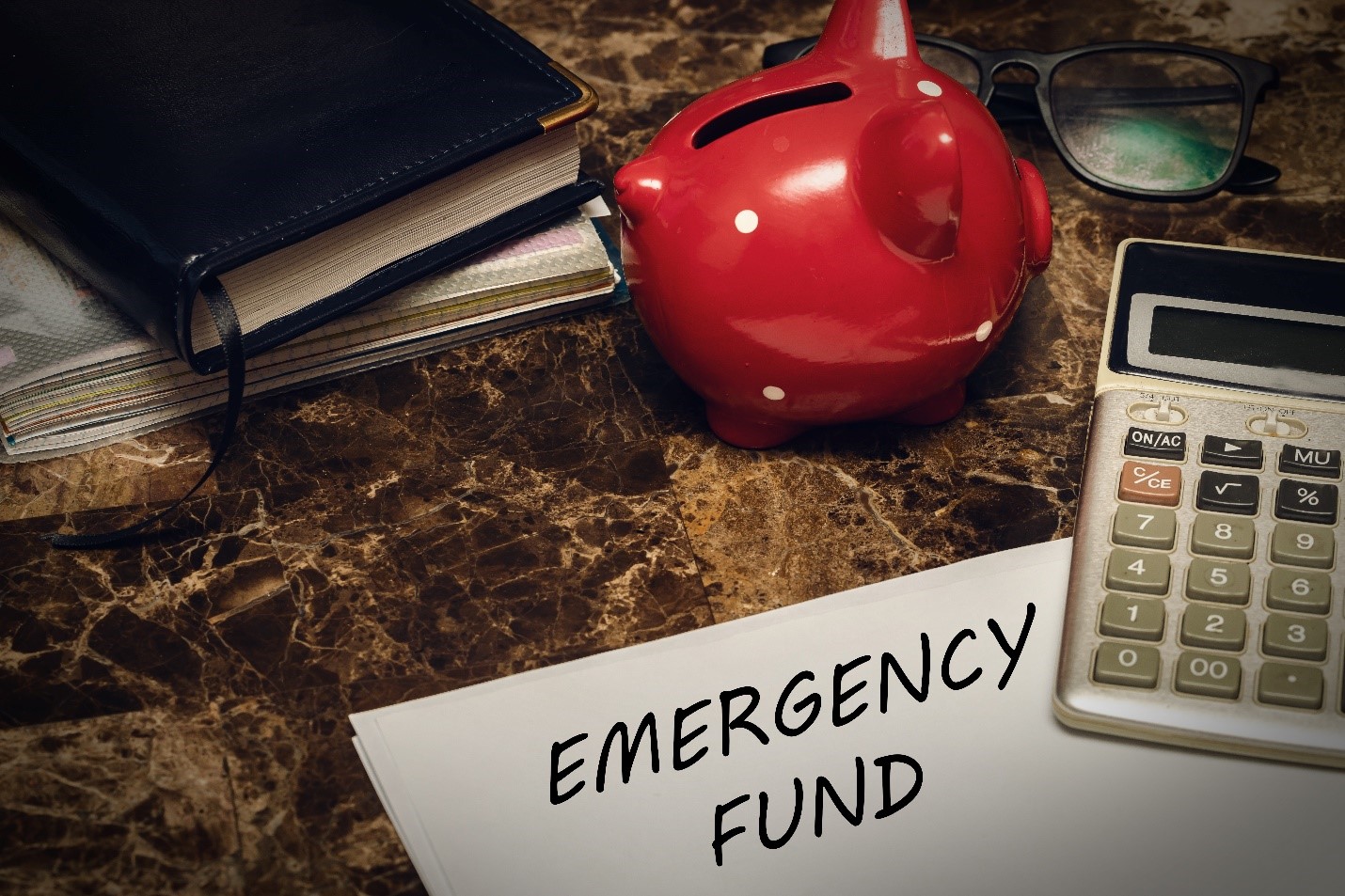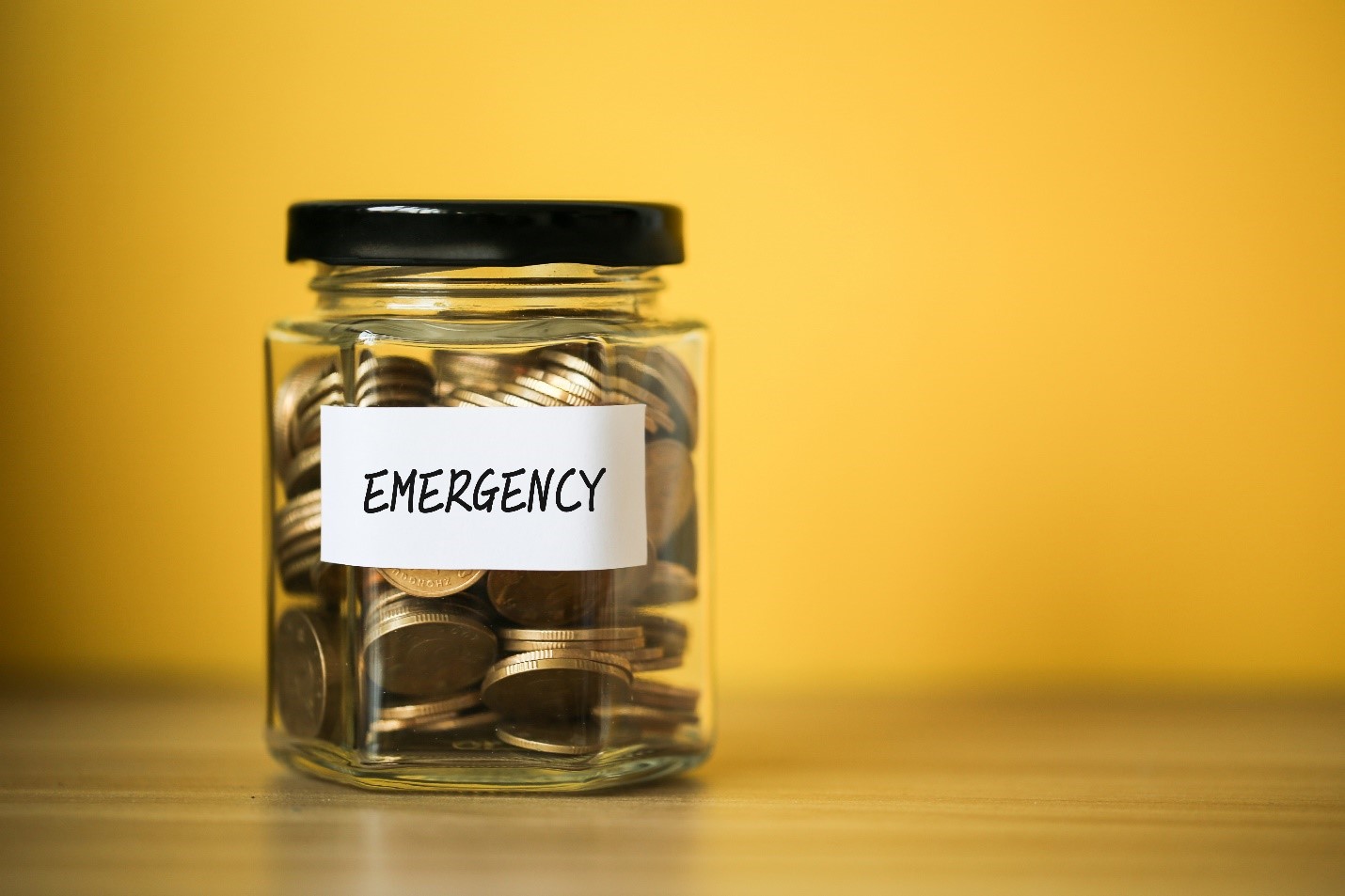Written by
Updated :
Reviewed by
In our day-to-day life, we might be faced with financial emergencies like unexpected medical bills, job loss, reduction of income, etc., which can deplete cash reserves and even adversely impact long-term savings goals. While it might not be possible to avoid all of these financial emergencies, it is possible to prepare for them. One way to do this is to build and maintain an emergency fund. Read on to more about what an emergency fund is, how much you should have in this fund and how to build it.
What Is An Emergency Fund?
An emergency fund can be defined as financial safety net explicitly created for unplanned expenses or other financial emergencies. Uses of an emergency fund can include paying for unexpected medical bills/hospitalization expenses, home repairs, ensuring payment of bills in case of job loss, etc. An emergency fund is a saving that can be used at the time or pay large or small unplanned bills that are not part of your routine monthly expenses.
How Much Should You Have in Your Emergency Fund ?
As per financial experts, the amount you should maintain in your emergency fund should be no less than 6 month’s expenses. But having a larger amount such as 9 months’ expenses is recommended. What’s more, it is also suggested that emergency funds be maintained in a designated accounts or relatively low risk liquid investments like savings account, liquid funds, ultra-short duration funds, etc.
To determine how large this amount would be you need to create a budget based on your regular expenses like rent, food, loan EMIs, insurance policy premiums, medical expenses for pre-existing conditions, etc. Once you have created the budget, you can easily calculate how large your emergency fund corpus should be. Also consider that as your responsibilities and expenses increase overtime, your emergency fund requirements will also increase. So make sure you periodically update your budget to ensure that your emergency savings are line with your financial responsibilities and requirements.
Importance of Building an Emergency Fund
Some of the key benefits of emergency funds are -
1. Better Preparedness for Emergencies
Perhaps the most significant benefit of an emergency fund investment is that you are better prepared to deal with unexpected situations. Knowing that you are better prepared for life’s unexpected situations also provides you with the additional benefit of peace of mind.
2. Avoid Costly Debts
Financial emergencies can arise at any time and not having sufficient resources to cope with the emergency can lead you into debt. So, having emergency funds handy can help you cope with emergencies better without resorting to taking a high interest personal loan or racking up expensive credit card bills.
3. Helps Control Spending
If you are putting aside money in an emergency fund investment, you will need to keep a check on your spending to meet your savings goal. In other words, the necessity to save towards an emergency fund can help control your spending so that you can add to your savings adequately.
4. Protection of Long-Term Savings
Besides paying for any unexpected financial emergency, allocating funds towards unforeseen expenses, can help protect long-term investments like retirement savings. This is because an emergency fund can cover unexpected expenses of various types so that your long-term investments do not need to be redeemed prematurely in an emergency.
Tips to Create an Emergency Fund
Now that you have a better idea about what an emergency fund is and its key benefits, let’s find out how you can start saving for financial emergencies. Below is a short list of tips that can help you create an emergency fund with ease:
1. Create A Saving Habit
Building an emergency fund of any size is easier if you consistently put money away. It is the fastest way to grow your funds. To regularly save money, you first need to set a goal i.e. figure out how large an emergency fund corpus you need. Once you have a savings goal in mind, you will find it easier to figure out how to reach your savings goal by making consistent contributions towards your chosen savings schemes. Also, regularly monitoring your progress would help in better saving your funds.
2. Use a Budget to Manage Your Cash Flow
Cash flow is the timing of when your money is coming in or going out and creating a monthly budget is an easy way to track your cash flow. Regular tracking of your cash flow helps you understand your cycle of payments and savings. This, in turn, can help you plan your spending so that your savings are maximized over various time.
3. Take Advantage of Windfall Gains
There may be a specific time during the year when you get some extra money over and your regular income. Examples of these can include receiving a bonus at work, gratuity pay-out on job change, maturity of an old fixed deposit, etc. Saving all or a portion of this extra instead of spending it all, can help you reach your emergency fund goal quicker.

2. Use a Budget to Manage Your Cash Flow
Cash flow is the timing of when your money is coming in or going out and creating a monthly budget is an easy way to track your cash flow. Regular tracking of your cash flow helps you understand your cycle of payments and savings. This, in turn, can help you plan your spending so that your savings are maximized over various time.
3. Take Advantage of Windfall Gains
There may be a specific time during the year when you get some extra money over and your regular income. Examples of these can include receiving a bonus at work, gratuity pay-out on job change, maturity of an old fixed deposit, etc. Saving all or a portion of this extra instead of spending it all, can help you reach your emergency fund goal quicker.

4. Automate Your Savings
An easy way to ensure consistent savings over time is to automate them. This can be achieved by setting up automatic transfers from your bank as an SIP (systematic investment plan) in a mutual fund of your choice, into a designated short-term recurring deposit or into a savings account specifically earmarked for maintaining an emergency fund. This is especially beneficial for salaried individuals who have predictable income and ensures that they make consistent contributions to their savings.
Investment Schemes to Consider for your Emergency Fund
Wondering where to park your emergency fund? Financial advisors suggest that you should consider 2 aspects when choosing an investment option for your emergency fund – safety and liquidity. In this context, safety refers to investments that are considered to be relatively low-risk i.e. possibility of loss is low.
Liquidity of an investment ensures that money can be withdrawn easily when required – a necessity to ensure financial preparedness for an emergency. Below are some relatively low-risk and liquid investment option that you can consider to invest your emergency fund corpus:
- Savings Bank Account:
A saving bank account is definitely a safe investment option to save your money. Moreover, the liquidity offered by this type of bank account is unmatched as you do not have to pay any penalties for withdrawing your money at any time. The only limitation is the relatively low interest rate of up to 4% p.a. that this investment offers. However, earning some interest while ensuring safety is better than keeping a large amount of cash at home.
- Fixed Deposit and Recurring Deposit:
Fixed Deposits (FDs) have been a popular investment option among Indians due to guaranteed returns they offer and the high degree of security associated with this investment option. Recurring Deposits (RDs) also offer the same benefits of security and low risk as a FD. The key difference being that while FDs are suitable for those with a lump sum available, RDs are more suitable for those who want to add relatively small amounts to create and maintain an emergency fund. The key limitation of these investments is that, while premature withdrawal of FD or RD is allowed, there is a penalty for doing so.
- Other Short-Term Investments:
Apart from the investment options mentioned above, there are other instruments too that you can use to build up your corpus for emergencies. The options include debt mutual funds like liquid funds and ultra-short duration funds. While these can be potentially riskier that fixed return investments, these schemes do tend to offer higher returns than fixed-return investments and also feature a high degree of liquidity. Liquid funds and ultra-short duration funds have a short lock-in period of around 7 days, so you can withdraw your funds with ease and without any penalties in an emergency. Ideally, you should maintain your emergency funds across 2 or more of the above investment options to strike a balance between safety and liquidity of the available corpus.

- Other Short-Term Investments:
Apart from the investment options mentioned above, there are other instruments too that you can use to build up your corpus for emergencies. The options include debt mutual funds like liquid funds and ultra-short duration funds. While these can be potentially riskier that fixed return investments, these schemes do tend to offer higher returns than fixed-return investments and also feature a high degree of liquidity. Liquid funds and ultra-short duration funds have a short lock-in period of around 7 days, so you can withdraw your funds with ease and without any penalties in an emergency. Ideally, you should maintain your emergency funds across 2 or more of the above investment options to strike a balance between safety and liquidity of the available corpus.

Frequently Asked Questions (FAQs)
Q. How can I save for emergencies?
A. You can start saving for emergencies by making a budget, setting a saving goals, automating your savings and choosing a suitable type of bank account or investment option such as different types of mutual fund to ensure safety of funds as well as easy withdrawal.
Q. What should an emergency fund be used for?
A. To ensure that you are using your emergency fund corpus correctly, you should clearly define what an emergency is. For example, loss of income or job loss is an emergency but getting a new expensive gadget just because your friend has bought one is not. Similarly, withdrawing from emergency fund is ok if you have unexpected medical expenses or hospitalization
Q. Why should I save for emergencies?
A. Emergency funds are made to keep a backup in case of any untimely emergencies or to meet any needs that may occur suddenly. If you do not have such a fund in place, unexpected emergency expenses might wipe out your savings or land you in debt trap.
Q. How large an emergency funds corpus should I maintain?
A. The amount will vary depending on your living expenses, but you consider saving between 6 to 9 months’ of living expenses for emergencies. Ideally, you should also recalculate your emergency fund requirement periodically, usually once every year to ensure that your savings are emergencies are in line with your current monthly expenses.".
Q. Can I keep emergency funds in cash?
A. While cash is one of the most liquid asset classes and can be available immediately in the case of emergencies, there are security concerns with respect to keeping cash. Keeping a large quantity of cash secure is not the most secure way to maintain emergency funds. Additionally, keeping money in cash means you are not earning any interest on it, so you lose the possibility of income through investment of your emergency funds.
Sources:
https://www.franklintempletonindia.com/investor-education/new-to-investing/article/head-start-9/what-are-emergency-funds
https://groww.in/blog/what-to-consider-before-building-emergency-fund
https://www.consumerfinance.gov/an-essential-guide-to-building-an-emergency-fund/
https://www.timesnownews.com/amp/business-economy/personal-finance/planning-investing/article/all-you-need-to-know-about-emergency-fund-benefits-why-you-need-them-and-more/604165
https://economictimes.indiatimes.com/wealth/invest/why-you-need-an-emergency-corpus-and-where-to-invest-your-money-to-create-one/what-is-an-emergency-fund/slideshow/87463276.cms
hhttps://paytm.com/blog/mutual-funds/what-is-an-emergency-fund-why-do-you-need-one/
ARN No : May23/Bg/08

